Contents
Landmarks
Page-list

The Joy
 f
f
Sweat
THE STRANGE SCIENCE OF PERSPIRATION
Sarah Everts

For Quinn
CONTENTS
The Joy
 f
f
Sweat
I n the summer of 1996, a woman walked into the dermatology office at Tygerberg Hospital in suburban Cape Town with an unusual complaint: Her sweat was red.
She was understandably alarmed. But the medical team? They were intrigued.
It was fantastically interesting, says Corena de Beer, a scientist who analyzed the case. We spent months trying to figure out what was happening. Here was a healthy person, a nurse, in her twenties. The moment she started sweating, pink spots would appear on her white uniform. By the end of a shift, the nurses underwear and uniform were sometimes bright red, particularly around the collar, back, and armpits. Every night she soaked her stained clothes for 2 to 3 hours before washing them just to get the color out, de Beer says. Not only was it very disconcerting to have something so abnormal happening to her body, but the nurse was also concerned about her job. In a hospital, nurse uniforms need to be white. She felt the red sweat was socially and professionally unacceptable.
Dermatologists see all manner of skin curiosities, but red sweat is so unusual that de Beer and dermatologist Jacques Cilliers published a scientific paper about it: The Case of the Red LingerieChromhidrosis Revisited. Chromhidrosis is the medical term for colored ( chrom ) sweat ( hidrosis ). This nurse, it turns out, was not the first person to produce pigmented perspiration, nor would she be the last. The medical literature features many reports of sweat that has turned green, blue, yellow, brown, or red, with causes as varied as rare genetic conditions and workplace chemical exposure.
There are even subcategories of the colored sweat phenomenon, including a faux version called pseudo chromhidrosis . Thats when sweat coming out of a persons pores only acquires a color after it hits the skin surface, a situation that happens occasionally to copper workers. The salt in their sweat oxidizes traces of copper on their skin to create a beautiful, if alarming, green sheen on their bodies like the bluish-green patina on the copper domes of buildings after years of weathering.
But the nurses perspiration was colored when it emerged from her pores, making it a true chromhidrosis . Something red inside her body was making an exit through the skin and its sweat pores. The medical team conducted a thorough examination of the nurse and found she was strikingly healthy, red sweat notwithstanding. Everyone was stumped, de Beer says. For a long time, the medical team had only one serious clue about the cause of her condition: While the nurse had been on a 4-week holiday, her red sweat had abated, nearly disappearing. But when she got back to her work routine, the red sweat returned. We started wondering if it might be stress-related. So we checked everythingher liver, her endocrine system, de Beer adds. But they were all totally fine.
In the end, the medical team discovered the source of her red sweat thanks to an accidental observation. At a follow-up appointment, the nurse showed up at the dermatology practice with brownish-red stains on her fingers, similar to the nicotine stains from a cigarette. But we knew she wasnt a smoker, de Beer says. And thats when the penny dropped. The stains on her fingers came from a pre-appointment snack: a South African corn chip called NikNaks Spicy Tomato.
It turns out the nurse had an obsessive predilection for the spicy tomato treat, which her medical team described in their scientific article as a six-month fetish. Calling her love of the corn chips a fetish was not hyperbolic. The nurse told the doctors she was indulging in 500 to 2,500 grams per week over an extended period. Thats between 1 and 5 pounds of chips a week. Given that a bag of NikNaks weighs 55 grams, the nurse had been eating up to 45 bags a week, or about 6 bags a day.
All South Africans eat NikNaks, de Beer says. They are salty and tasty. My favorite is the cheesy flavor. We just dont all eat the same volumes as her.
The medical team suspected that something red in the NikNaks was coming out in the nurses sweatmaybe the paprika or tomato flavoring or perhaps a red dye. The team contacted Simba, the company that produces NikNaks, to get a list of ingredients and found that the red pigmentation in the nurses sweat was the same as the color of the tomato ingredients added to the corn snack. At first the nurse couldnt believe what we were telling her, de Beer says. She was skeptical that [Spicy Tomato] NikNaks were the problem. But we put her on an elimination diet, and in a few months the red sweat was completely gone. Soon the nurse was back to having only the usual complaints about sweat on a hot day: sticky clothing, inconvenient wet patches, a dank aroma.
Until I read about the South African nurse, I had the naive and erroneous impressioneven with a masters degree in chemistry and more than a decade of experience as a science journalistthat sweat was just a banal mix of salt and water. Plus stink molecules, of course, and possibly pheromones. But to think that our bodies leak secrets about our vices was both fascinating, and, well, alarming.
If a persons chip fetish could be exposed in her sweat, what other privileged information about biology and behavior might also be pouring out? Might Big Brother monitor the food we eat and the drugs we take by sampling our perspiration? Could doctors assess our health or diagnose disease by taking sweat samples? Were we leaving damning traces of ourselves and our vices every time we touched something with sweaty hands? Were these secrets discoverable by analyzing fingerprints, which are inked with sweat? (Spoiler: Yes they are.) Reading about the case of the red perspiration got me hooked on sweat science, like a night nurse on NikNaks.
I couldnt stop thinking about what secrets I was leaving behind in my perspirationespecially given that I tend to lose a lot of it. I have long harbored a nagging worry that I might sweat more than average. When it is hot out, I seem to be the first in any group to glisten. At the gym, I often reach for a towel before the warm-up is over. During hot yoga, I surreptitiously peer at my neighbors mats, looking for evidence that others are also dripping on their mats when I should be focusing on my own downward dog. The utter absurdity of this scenesomeone obsessing about their own perspiration during an intentionally sweaty activity that is ultimately supposed to leave one calm and groundedis not lost on me. I decided to turn my preoccupation with perspiration into professional curiosity. I sought out people who sniff armpits for work and others who do so in search of romance. I spoke with scientists who study sweatfrom the molecules that make us stink to the ones that might get us arrested.
As I began to dig into sweat research, I learned that some people sweat so much, they have difficulty holding a pencil or a cell phone because the objects slip right out of their hands. Sweating can be so socially and professionally debilitating that some individuals struggle with depression and anxiety. And some turn to invasive surgeriessuch as cutting the ganglia associated with the spinal cordto try curbing perspiration.

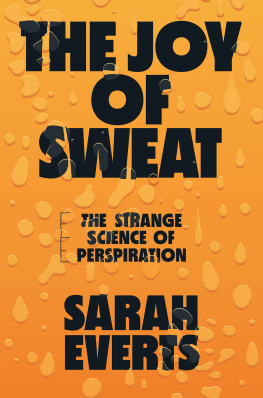






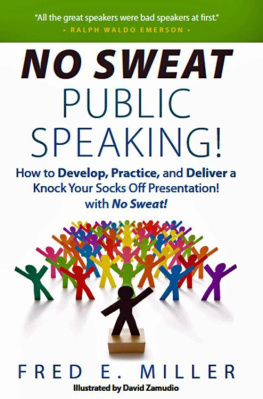
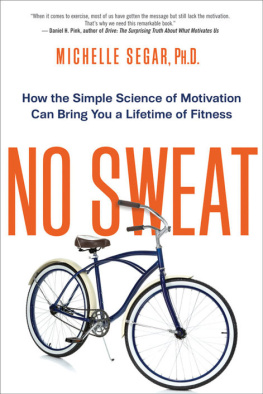
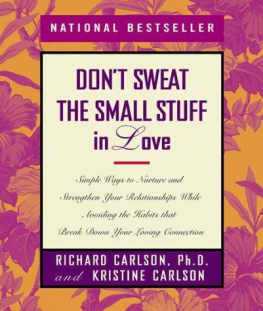
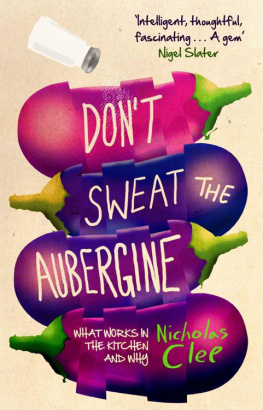


 f
f